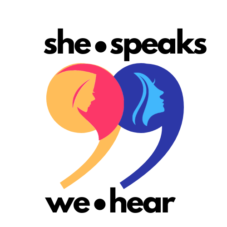
What are some of the experiences, emotions and painful memories that we need to let go? They range from thwarted intentions, lost lovers, anger and being wronged, to humiliation, shame, greed, and regret. There are, so to speak, innumerous traps to navigate whilst walking the path to freedom.
So how do we ‘let go’? Well, first we must understand the mechanism of entrapment. David Hawkins, a pioneering researcher in the field of consciousness, has written a highly acclaimed book called ‘Letting Go’ within which he describes our emotional responses to experience. He suggests that our responses usually end with suppression, expression or escape. When a crisis occurs, we may suppress our feelings consciously or subconsciously, thereby confining our feelings to the recesses of our mind. This may be because we don’t know what to do with them, however, we try to carry on our lives like normal. Unfortunately, this response causes maturational blocks and creates a life where we are caught up in an endless cycle of projection, denial and other defence mechanisms. This is the antithesis of letting go and if we cannot accept ourselves as a whole, we cannot begin to let go.
“We must stop resisting the love that is underlying the pain and take action that brings out the best in us.”
An alternative response is to express ourselves and our pain, in the hope that we may expunge, release and ultimately let go. In our technologically advanced age, with easy access to a multitude of micro-publishing tools such as social media channels, we may be seduced into thinking that if we continue to ‘release’ our feelings on these platforms then we are in fact ‘letting go’. However, the process of release has to be authentic. When we vent through filters of ‘looking good’ or ‘being politically correct’ or even ‘being vexatious’ there may be many distortions that occur in what we choose to ultimately communicate and this, in turn, results in the release of some of those feelings and the suppression of much of the rest.
In the wake of the Christchurch shooting many had a strong emotional response to the loss of innocent lives and we have the freedom to express that in whatever legitimate way we choose. If we take a moment and consider how we might be able to ultimately let go is to consider how we might be able to let those feelings drive positive action. We must stop resisting the love that is underlying the pain and take action that brings out the best in us.
We might also turn to some form of escapism, by which we mean the complete denial of all feelings related to the subject at hand. We may get busy, or smoke, or go shopping, or even binge watch some series on Nexflix. Anything to avoid the silence and the loneliness. As we avoid, avoid, avoid we become like a balloon full of air until we are ready to burst. The moment we stop to face the feelings and stop fighting them, we begin to experience release and we can begin to feel better.
When there is a crisis we might start to look for what is wrong and who is to blame, who is the victim (usually ourselves) and who is the perpetrator, we are quick to develop a narrative that describes why we have been wronged. We build up stories to support our view that we are not responsible, that we don’t need to apologise, and that we have suffered that an injustice that is not fair. There’s a pay off to holding on and this pay off is what keeps us stuck. Accepting our role, making changes, knowing that s/he just wasn’t right for us, being ok with being someone who makes mistakes, knowing that death happens, and getting perspective on the problem, these can all be messages that help us let go and to release. We are able to step into the light and life is able to take us on a more beautiful journey.
These sticking points are the very things that make us human, these are the aspects of ourselves that we hide whilst seeking peace and enlightenment and therein lies the irony. To truly discover ourselves and to truly reach the pinnacle of human existence and freedom we must first accept ourselves including the darkness as well as the shadows. We must let go of our mistaken belief that we were meant to be perfect, for it is this fear, that keeps us stuck. As travellers on this earth, ultimate freedom lies in accepting the world and all that is in it as a game. We are at the centre of it all, and we are the ones who can let go. In the silence of that moment and in the quiet of our minds when there is nothing left to do except letting go we have hope of reaching the peace and freedom we so desire.
Disclaimer: the opinions expressed in this article are solely those of the original author and do not necessarily reflect the views of the website.
